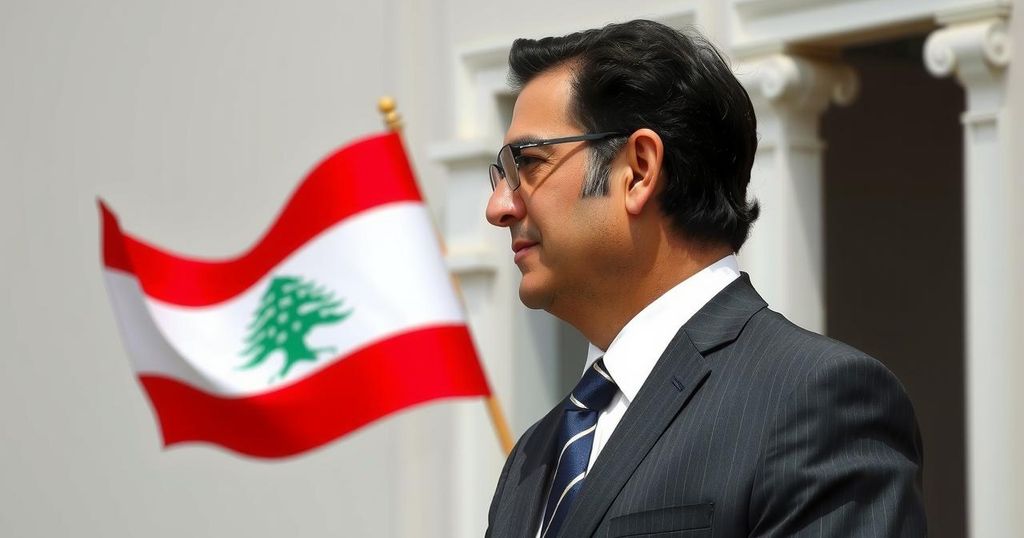The election of Joseph Aoun as Lebanon’s president, heavily influenced by Saudi diplomacy, marks a potential shift in the political landscape. His victory, with significant backing from both Saudi Arabia and Western nations, signifies a critical change in Lebanon’s governance and a potential push against Hezbollah’s military autonomy. Aoun’s commitments to state authority and the disarmament of armed groups reflect the complicated dynamics of Lebanese politics amid regional tensions.
On Thursday, Lebanon witnessed a critical turning point with the election of General Joseph Aoun as president, primarily attributed to a significant diplomatic effort from Saudi Arabia. With less than 24 hours before the parliamentary vote, Lebanon’s political landscape seemed precarious, engulfed in turmoil as various factions deliberated over six potential candidates. The Saudi delegation, led by Prince Yazid bin Farhan, conducted multiple meetings, consolidating support for Aoun, who ultimately secured 99 votes from lawmakers, surpassing the required two-thirds majority. Following his election, Aoun pledged to initiate a ‘new era’ for Lebanon, emphasizing the need for state control over armed groups, particularly targeting Hezbollah.
The election of Aoun, who is supported by the United States, not only signifies a shift in power dynamics within Lebanon but also raises questions regarding regional influences, especially the reengagement of Saudi Arabia in Lebanese affairs—a marked departure from its previous stance of detachment. The strategic collaboration with Western diplomats, including outreach from the United States and France, facilitated Aoun’s rise against the backdrop of a drastically weakened Hezbollah. Though Hezbollah did not overtly oppose Aoun, casting blank votes before endorsing him, their support amid calls for disarmament reflects the complex reality of Lebanese politics.
The sectarian political environment in Lebanon has historically relied on consensus to elect a president, but Aoun’s ascension—together with Hezbollah’s altered position—indicates a potential shift toward a new political equilibrium, even amid ongoing geopolitical challenges. Aoun inherits a fractured state, already burdened by various regional disputes, foreign military presence, and internal demands for reform. Observers have expressed cautious optimism, seeing Aoun as a figure capable of bridging divides in a nation long characterized by political stalemates and external interferences.
The political landscape of Lebanon has been defined by sectarian divisions and external influences, predominantly from regional powers such as Saudi Arabia and Iran. Historically, the appointment of a Lebanese president requires a near-consensus from the conflicting sectarian political elite, representing different religious factions. The past few years have seen increased Iranian influence in Lebanon, primarily through Hezbollah, which has bolstered its power amidst regional turmoil. This context highlights the implications of Aoun’s election, particularly regarding Lebanon’s relationship with Saudi Arabia and the potential for a shift in the balance of power within the region.
In summary, Joseph Aoun’s election marks a significant transition in Lebanese politics, with Saudi Arabia’s renewed engagement suggesting a pivotal shift in influence back towards the Arab Gulf. Aoun’s presidency raises critical questions regarding Hezbollah’s future, the balance of power within Lebanon, and the possibility of a fragile but necessary political consensus. As Lebanon navigates this uncertain landscape, the emphasis on national sovereignty alongside the expectation of disarmament presents a complex challenge for the newly formed government. Nonetheless, the international community’s support may provide a framework for addressing the ongoing issues that the country faces.
Original Source: www.cnn.com






